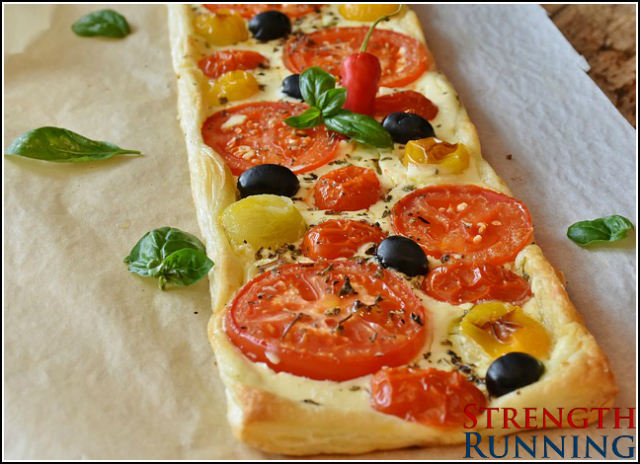Why are nutrition and diet so complex? No matter where you look online, there’s conflicting advice on how to eat.

Paleo and fat-adapted advocates will tell you to swear off carbohydrates and rely solely on fat for fuel.
Plant-based athletes think removing animal products from your diet will improve your performance.
Countless authors and diet “experts” demand that you track every calorie, calculate every macronutrient percentage, or even give every food you eat a certain “score.”
I’m exhausted just thinking about it.
If you’re like me, you don’t have time to weigh your food and calculate all these numbers. I’m a runner with a life, not a bored mathematician!
And I like carbohydrate. And fat. And plants. And steak. I love to eat almost as much as I love to run…
Are runners doomed to sluggish racing and sub-par recovery by eating a “normal” diet? Do we have to go to great lengths just to eat a “performance nutrition” diet?
One of the many lessons that we can learn from the 2016 Olympics is that you can eat a standard diet and still cover all of your nutrition bases.
You can even thrive on a “normal” diet that includes everything from meat to bread and even dessert!
What Does an Olympian Eat?
A recent Vox article asked How do Olympians eat? And the answer is fascinating.
The most telling part of this article came from Matt Fitzgerald. He’s traveled to five countries to study the diets of elite endurance athletes.
Here’s what he found:
Among the 130-plus elite endurance athletes he surveyed, he noticed their eating patterns were balanced and clean.
“Although they eat everything, they skew toward the highest-quality food types — natural and unprocessed,” Fitzgerald said. The athletes also didn’t follow popular fads, like avoiding gluten, or restrict themselves from eating particular foods or food groups.
They even indulged in the occasional sweet or drink — though that happened at the margins.
No diet fads like Paleo? No restricted food groups? Now that’s performance nutrition that I can support!
Endurance athletes like distance runners are considered to be on the heavy side of the “calorie spectrum” – in other words, we need a lot!
And not just any energy, we need readily available energy and that comes in the form of high-quality carbohydrates like:
- Whole-grain bread
- Fruits and vegetables
- Rice, quinoa, and other grains
This is the rocket fuel that helps us finish our long runs and track workouts strong.
There’s even a clear trend among elite non-runners to focus on whole, real foods rather than a specific diet, macronutrient calculations, or other restrictions.
Some of the most common foods among Olympians include:
- Oatmeal
- Kale (often in a green smoothie)
- Eggs
- Lean meat like chicken, grilled tenderloin, and fish
- Nuts and seeds
- All fruit and vegetables
Want more? SB Nation recently did a “Feeding the Olympian” piece that I highly recommend.
How Should YOU Eat?
Matt Fitzgerald, author of Racing Weight, once said:
Elite athletes never go in for the alternative [diet] methods, for a couple of reasons. The first is obvious: As the fastest athletes, the elites do not experience the gnawing envy of faster athletes that is at the heart of sour grapes syndrome.
The second reason is that the alternative methods don’t work as well as the dominant best practices. Athletes whose livelihood depends on being as fast as possible can’t afford to fool around with inferior methods the way slower athletes with alternative goals can.
I will argue that every runner who wants to “eat healthy” should focus on, as Matt stated, “the dominant best practices.” They’re best practices for a reason!
And as I looked at the example meals and diets of Olympians, I noticed there was nothing surprising.
Are you surprised that there are no surprises? No “secret” meals, “magic” fuel, or super expensive fruit from the bowels of the Amazon with super antioxidant properties?
You shouldn’t be.
In the past, we’ve looked at the diets of two elite runners (Kimber Mattox and Ariana Hilborn). From those case studies and the articles linked above, we notice several key trends:
- Performance nutrition includes all food groups
- Counting calories or doing other calculations is unnecessary
- “Cheat” foods are encouraged!
- There’s no formal “diet” – just a focus on whole, unprocessed, real foods
It’s clear that if you want to emulate the best athletes in the world, you should copy this approach.
Of course, if you have a set of values that conflicts with best practices, then you have a decision to make. For example, if you don’t consume animal products because of animal rights or because CAFO’s release high levels of greenhouse gases, then it’s your choice to skip the meat.
The decision is yours. I’m not here to preach to you – just expose you to the training and eating habits of the best runners in the world.
How to Periodize Nutrition
As runners, we typically periodize our training (often without even thinking about it).
Sometimes, we take a week off. Other times, we’re pushing the envelope with high mileage or sharpening our speed to race a fast 5k.
This balanced approach to training is essential for reaching your potential. It’s the cornerstone of a well-planned season (here’s how to plan a smart season).
And you can also periodize your nutrition:
- In the thick of hard marathon training? It’s time to eat more carbs and food overall
- Taking a week off? Eat fewer carbohydrate and food overall
- Only running a little bit? Eat a “normal” amount
- Take a cheat day once in a while!
Not only does this allow more flexibility, but it’s truer to your body. You need more energy when your workload is higher. And you need less energy when you’re at rest.
This approach was also universally accepted by four Registered Dietitians that I’ve had the pleasure of working with:
- Nancy Clark MS, RD, CSSD – team nutritionist for the Boston Red Sox and best-selling author of the Sports Nutrition Guidebook
- Lauren Kort MS, RD – national award-winner and member of PowerBar Team Elite
- Anne Mauney RD, MPH – former sports dietitian for the Endurance Athlete Center, Anne owns a private practice and previously taught at GWU
- Kristina LaRue RD, CSSD, LDN – consultant to the Orlando Magic and UCF and on-air nutritionist for Fox 35 Orlando
During a series of interviews, every dietitian here interestingly agreed: there is no single best diet, all food groups should be represented, and an occasional treat is a great idea – even if your goal is weight loss!
As Nancy Clark told us:
There’s no need to count calories. Your body is the best calorie counter.
When the world’s most prominent sports nutritionist tells me not to count calories, I listen…
And we go into many more detail here about how to eat stress-free.
How to Eat a Performance Nutrition Diet
There’s no doubt that eating properly will enhance your training. That’s why elite athletes focus so heavily on ideal nutrition.
And even a minor upgrade to your diet will boost your recovery, capacity for higher mileage, and overall energy.
The key is to eat for sustainability (strict diets don’t work because you can’t sustain them in the long-term): eat foods that you love, with no restrictions, and watch your race times improve.
To get you started, I’ve partnered with Anne Mauney MPH, RD to answer your top nutrition questions.

Here are a few that we cover:
- “How do I stop snacking so much at night?”
- “Is it ok to drink a beer every night?”
- “What’s the best way to refuel after a long run?”
- “How do I eat enough to run but also lose weight?”
We’ve created two audio seminars tackling your toughest questions – that you can have for free.
Just sign up here and I’ll send them to you.